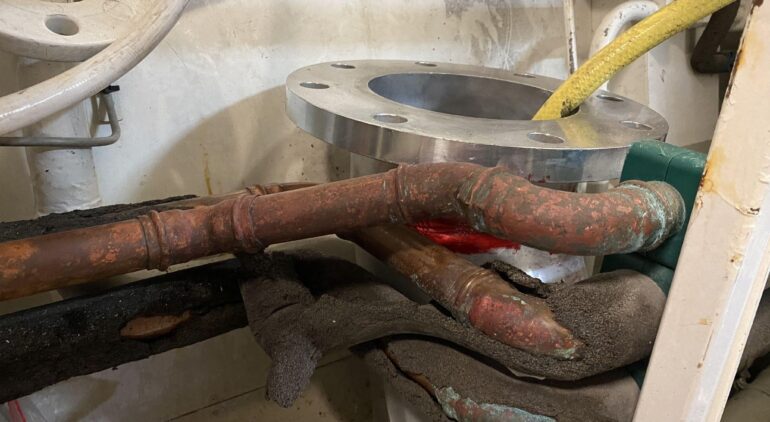
Prevent Boat and Yacht Water Intrusion Problems
For boat and yacht enthusiasts, water intrusion is a big concern. It can cause problems like hull deterioration, electrical system damage, mold and mildew growth, and ultimately, sinking. Therefore, timely detection and repair of entry points is crucial to ensure the safety of the waters. However, with proper maintenance techniques, you can avoid such problems. In this article, you will explore various important tips for boat repair, including water intrusion tips and solutions in Fort Lauderdale.
-
Regular Inspections:
Keeping an eye on leaks is a better way to manage water intrusion problems. Check hull, deck fitting, windows, hatches, and seams regularly before the situation escalates. Look for signs of corrosion, cracks, loose fittings, or damaged seals. Pay special attention to areas where different materials meet, as these are common water entry points.
-
Sealant Maintenance:
Long-term exposure of the boats to marine conditions like UV rays, saltwater, and general wear and tear can cause damage to sealant around windows, hatches, and deck fittings. Therefore, always look for sealant and fittings to prevent water intrusion. Don’t hesitate to remove any deteriorated sealant to maintain a watertight seal.
-
Bilge Pump Maintenance:
Removing extra water from the bilge area is crucial because it keeps your boat dry. Therefore, regularly inspect the pump for proper operation and ensure that the intake strainer has no debris. Also, Test the pump regularly to verify that it activates automatically when water accumulates in the bilge. You can install a backup pump or a high-water alarm for added security.
-
Thorough Deck Cleaning:
A clean deck is important not only for aesthetical purposes but also for preventing water intrusion. Because dirt, debris, and organic matter can trap moisture and accelerate the deterioration of sealants and fittings, it is important you clean your deck regularly. Also, pay attention to hard-to-reach areas where water can accumulate. Avoid using harsh chemicals that may damage sealants or corrode metal fittings.
-
Proper Ventilation:
Another important factor to consider is preventing moisture buildup inside your boat. Not doing so can lead to mold, mildew, and corrosion. Therefore, maintaining proper ventilation is essential for preventing moisture buildup inside your boat. Make sure that vents, storage boxes, and engine room blowers are functioning correctly so that you won’t face any hurdles in maintaining ventilation. Installing moisture-absorbing products such as dehumidifiers or silica gel packs in enclosed spaces can also help to maintain optimal humidity levels.
-
Hull Maintenance:
Inspecting the hull is essential to maintain the seaworthiness of your boat. Any sign of damage, such as cracks, blisters, or delamination, can deteriorate the condition of your boat. If you encounter any issue, address it instantly, and try to keep the hull clean and free from marine growth, as fouling can compromise the effectiveness of anti-fouling coatings and increase drag, leading to higher fuel consumption.
-
Professional Inspections:
Although DIY maintenance is important, you must also go for regular professional inspections. A qualified marine class-certified surveyor such as All Points Boats (APB) can conduct a comprehensive assessment of your boat’s condition, including its structural integrity and susceptibility to water intrusion. They can identify potential issues that may not be apparent to the untrained eye and provide recommendations for corrective action. This will maintain the seaworthiness of your boat.
Wrapping Up
Water intrusion is a big concern because it can cause potential damage and risk of sinking. However, keeping an eye on water intrusion problems and taking your yacht to repair services regularly can alleviate the problems. This way, boat owners can also ensure that their vessels remain seaworthy and safe for enjoyable outings on the water.
